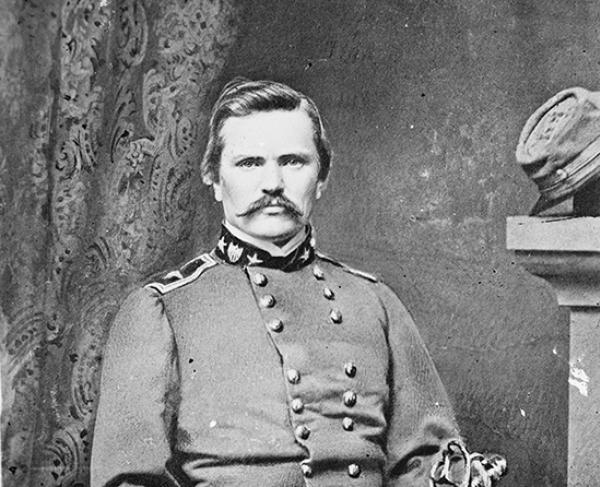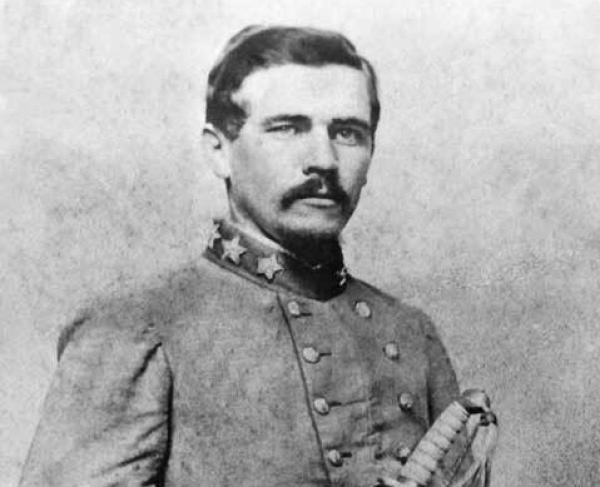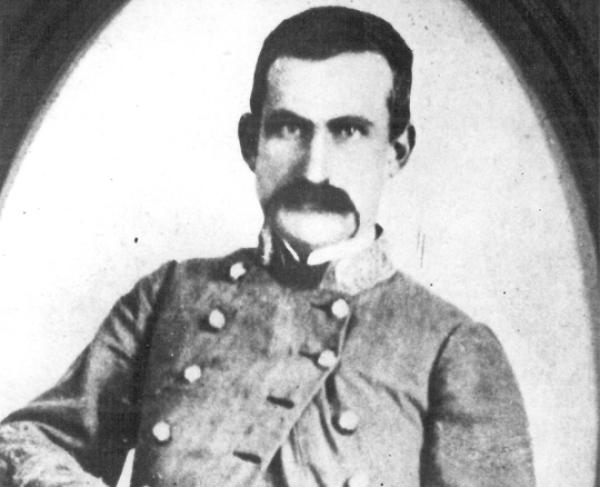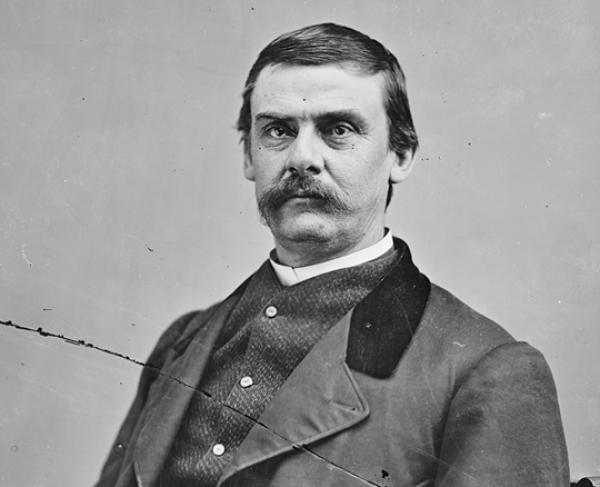Simon B. Buckner

Simon Bolivar Buckner Sr. graduated from the United States Military Academy with the class of 1844. He served during the Mexican-American War, during which he fought at the battles of Churubusco, where he was wounded, as well as Contreras, Churubusco, and Molino del Rey. After the war, he briefly taught at West Point, and served in the west before resigning from the military in 1855.
At the outbreak of the Civil War, Buckner was the adjutant general of the Kentucky State Guard, and after declining a commission of brigadier general in the Union Army, accepted a commission of brigadier general in the Confederate Army on September 14, 1861. After joining the army, Buckner was sent by General Albert Sidney Johnston to be one of the brigadier generals in charge of defending Fort Donelson, an important fortification built along the Cumberland River. Forces under General Ulysses S. Grant were able to force Buckner and several other generals in the fort to accept an “unconditional surrender” that helped bring fame to Grant. Buckner was imprisoned until August 15, 1862, when he was exchanged for Union general George A. McCall. After his release from prison, he returned to the Confederate Army where he served under General Braxton Bragg at the Battle of Perryville, and helped fortify Mobile, Alabama until April of 1863. He was then transferred to the Department of East Tennessee and directed an infantry corps at the Battle of Chickamauga, and then under General James Longstreet during the Siege of Knoxville. On September 20, 1864, he was promoted to lieutenant general, and became the Chief of Staff under General Kirby Smith, until the army surrendered in 1865.
After the war, Buckner lived in New Orleans, since he was not permitted to reside in Kentucky for three years. He returned to Kentucky in 1868, and was elected governor of Kentucky in 1887, where he served until 1891.


